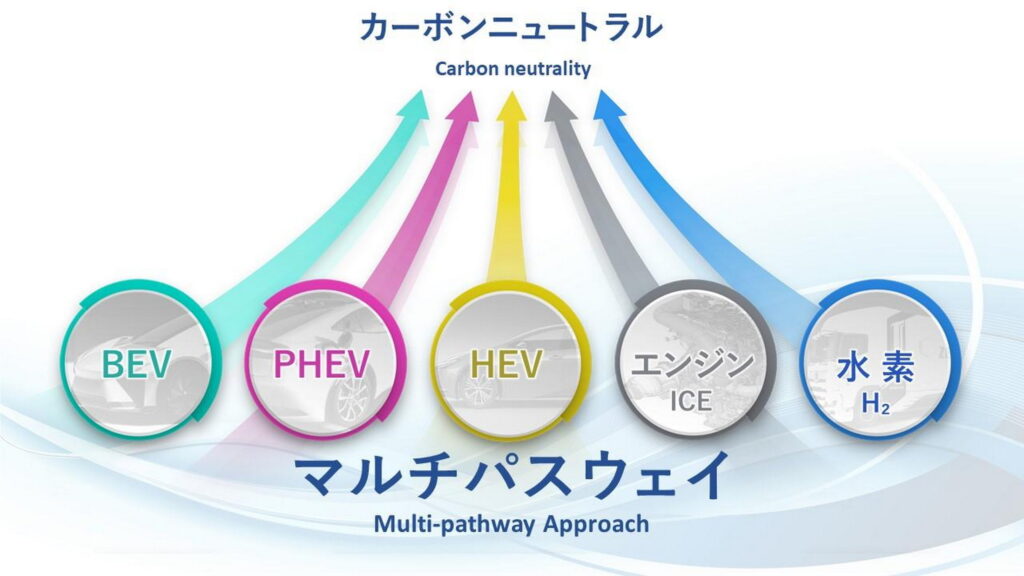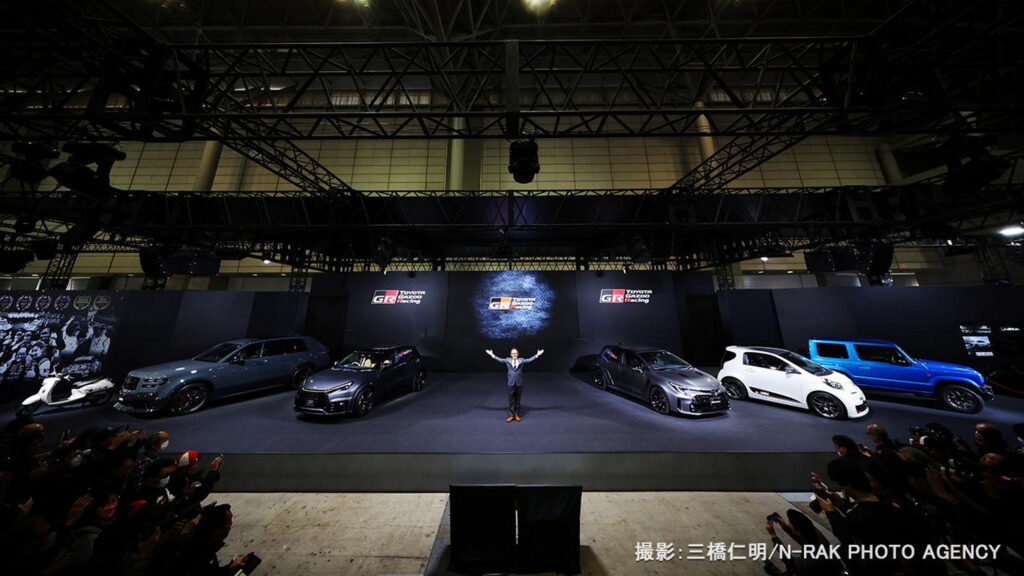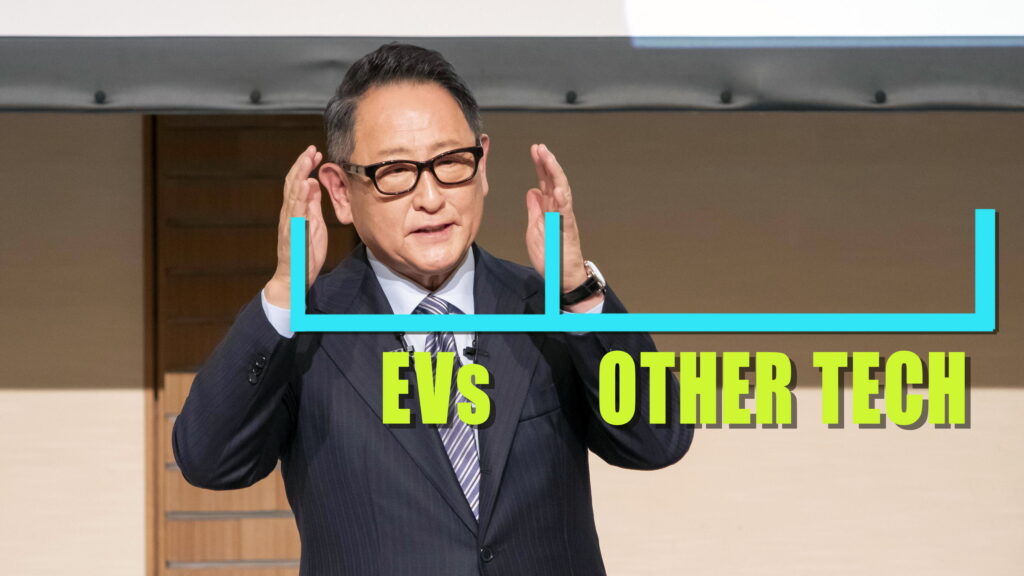Toyota has faced its fair share of criticism from environmental activists and investors due to its sluggish adoption of electric vehicles (EVs). The rationale behind its glacial pace may be explained by its chairman’s recent comments that he believes fully electric vehicles will only ever account for 30 percent of global auto sales.
Akio Toyoda, the current chairman and former CEO of Toyota, and the grandson of the company’s founder, shared these remarks at a recent business event. He expressed his belief that, “no matter how much progress BEVs [battery electric vehicles] make,” hybrid vehicles, fuel cell electric vehicles, and hydrogen combustion engine vehicles will still constitute 70 percent of the automotive market.
“That’s why Toyota Motor Corporation, which is competing all over the world, has a full lineup of multi-pathway products,” Toyoda said, in a response published by the Toyota Times, as translated by Google. He added that powertrain technology “is something that customers and the market will decide, not regulatory values or political power.”
Read: EVs Pollute 30% Less Than ICE Over Lifetime

Toyoda argued that approximately one billion people worldwide lack access to electricity, although estimates from the International Energy Agency suggest that the actual number is closer to 775 million. He claimed that “a single BEV option cannot provide transportation for everyone.”
Toyota’s mission is to reduce CO2 emissions, not necessarily to convert to electric or fuel cell vehicles, Toyoda said. He also claimed that “no one, mainly the media, is giving us an explanation” for why EV technology is the solution that is promoted as the best pathway forward, but that’s not quite true.
There is evidence to indicate that internal combustion engines, whether they’re fueled by fossil or synthetic fuels, could lead to more pollution than EVs. Although the manufacturing of electric cars emits more CO2 than the production of internal combustion vehicles over their lifetime, they pollute significantly less than gas and diesel-powered vehicles.
Meanwhile, the manufacture of hydrogen and other synthetic fuels is highly energy intensive. Research suggests that their widespread adoption in passenger vehicles could increase the need for electricity so much that it could make us dependent on coal and other polluting power generation technologies. Therefore, many suggest that these fuels should be saved for industries that cannot easily electrify, like long-haul trucking and aeronautics.
Toyoda has long opposed an all-EV policy, and the company has wielded its political power to resist laws enforcing them. Although the company continues to develop alternative powertrain technologies, since the chairman left his post as CEO, the company has increasingly focused on the production of electric vehicles, and its new chief executive says that accelerating their development is a priority.





